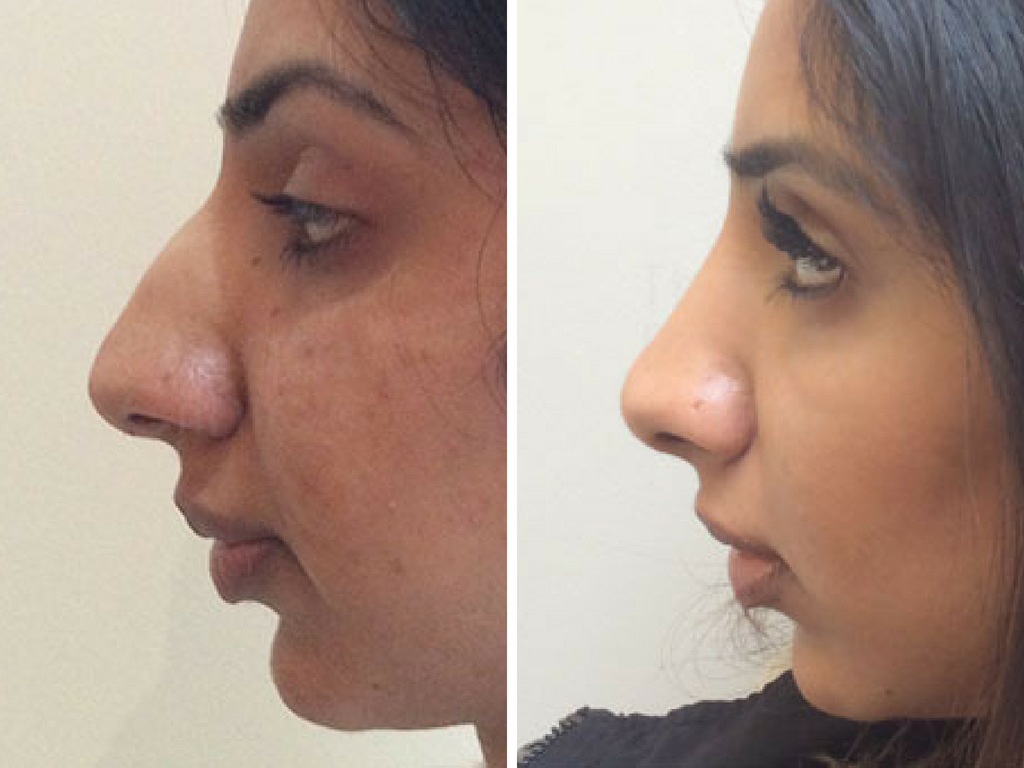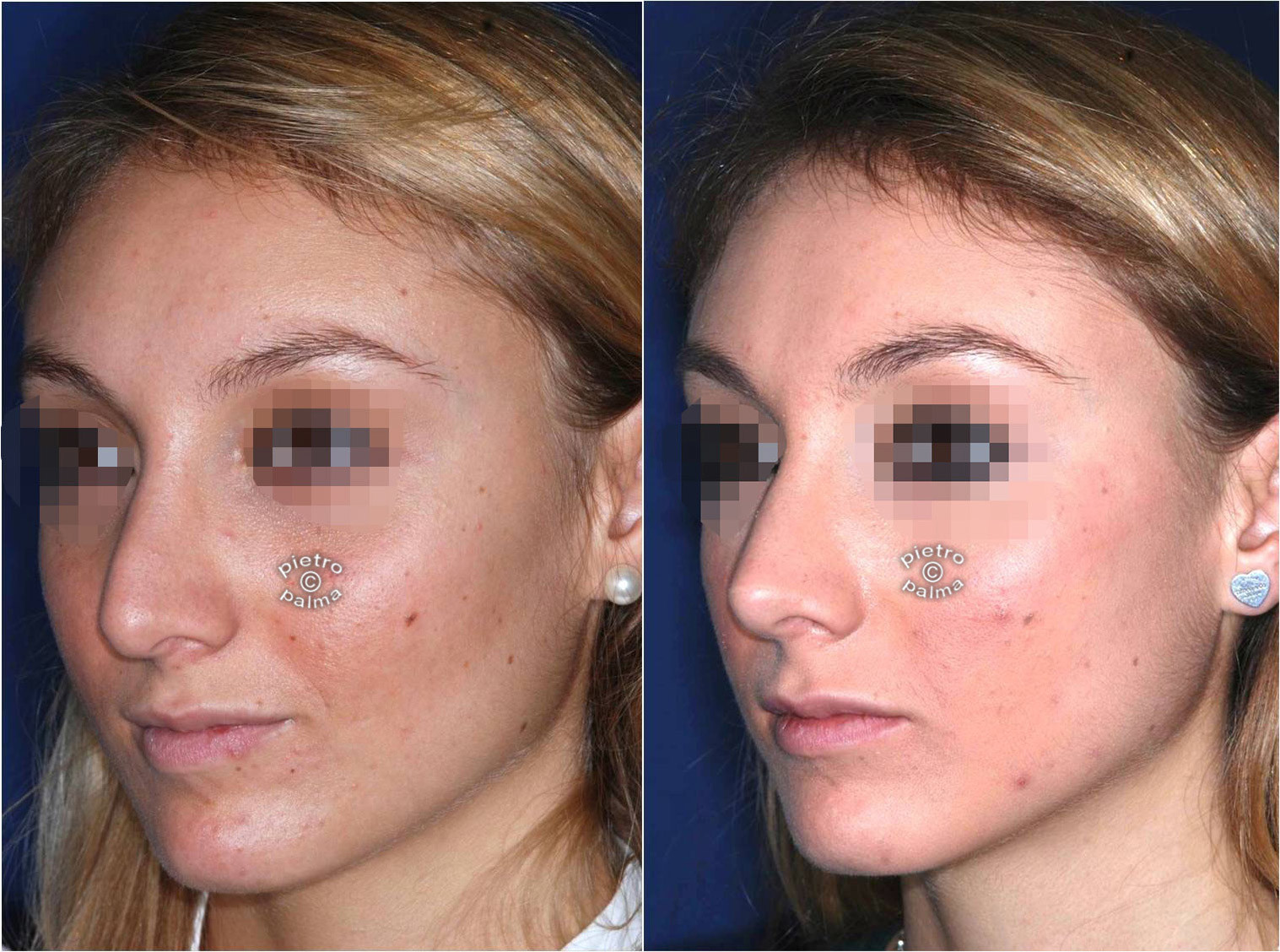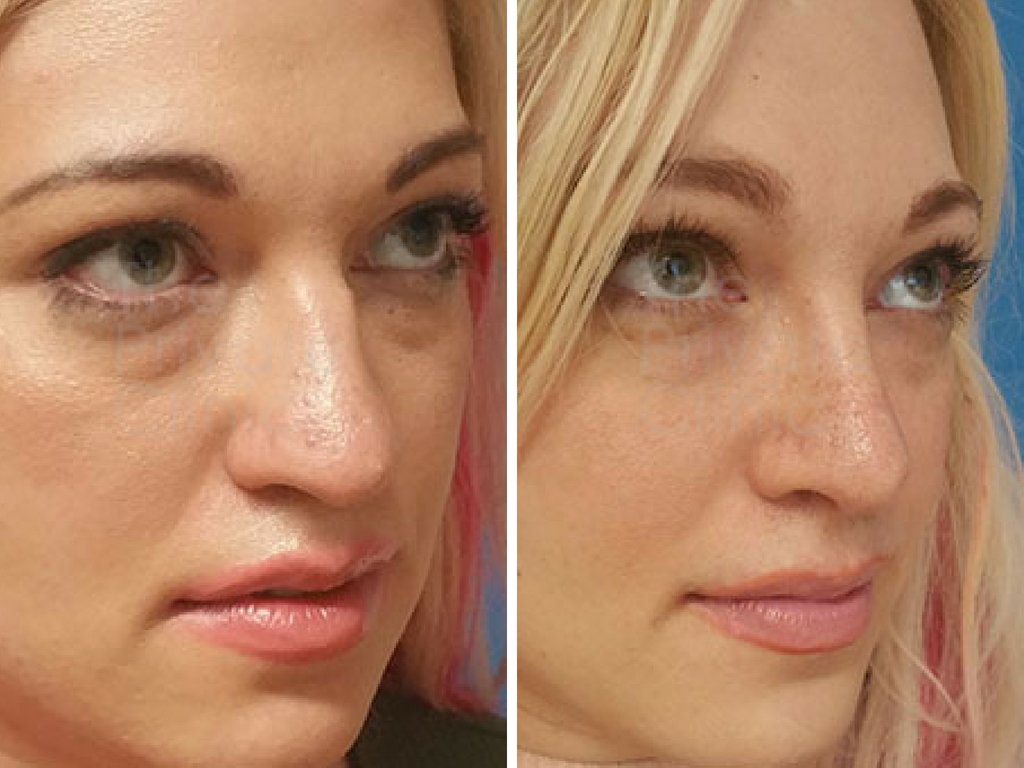When it comes to How to Choose a Top Rhinoplasty Clinic in Europe for Nasal Surgery, making an informed decision is crucial for healthcare professionals guiding their patients. Navigating the myriad of options can be daunting, but understanding the essential factors can streamline the process. This informative guide will delve into key elements such as evaluating the credentials of the best rhinoplasty surgeons in Europe, the significance of clinic accreditation, and how to assess patient reviews effectively. Furthermore, by exploring insights on rhinoplasty surgery costs in Europe and technological advancements, professionals can better assist their patients in choosing a nasal surgery clinic that meets their needs. As we explore the top-rated rhinoplasty surgeons in Europe, we also provide a comprehensive overview of essential rhinoplasty surgery tips in Europe, ensuring a well-rounded understanding of the journey ahead for those considering this transformative procedure.
Understanding Rhinoplasty: An Overview for Healthcare Professionals
Rhinoplasty, commonly referred to as a “nose job,” is a surgical procedure aimed at altering the shape or function of the nose. It is one of the most frequently performed plastic surgeries globally, particularly in Europe, where many top rhinoplasty clinics in Europe establish high standards in cosmetic and reconstructive surgeries. Healthcare professionals must have a comprehensive understanding of this procedure, not only to guide patients appropriately but also to collaborate effectively with surgical teams.
Key Aspects of Rhinoplasty
- Indications: Rhinoplasty may be performed for aesthetic enhancement, corrective measures after trauma, or to improve airway function in cases of congenital or acquired deformities.
- Types of Rhinoplasty:
- Open Rhinoplasty: Involves an external incision, allowing for greater visibility and access, which is particularly beneficial in complex cases.
- Closed Rhinoplasty: Conducted entirely through internal incisions, resulting in minimal scarring but with limited visibility for the surgeon.
- Techniques Used in Surgery:
- Reduction Rhinoplasty: Focuses on reducing the size of the nose.
- Augmentation Rhinoplasty: Involves increasing the volume or projection of the nose.
- Revision Rhinoplasty: Corrects or improves the results of a previous nose surgery.
Importance for Healthcare Professionals
Understanding the nuances of rhinoplasty is crucial for healthcare professionals for several reasons:
- Patient Education: Providing accurate information regarding the risks, benefits, and realistic outcomes of the procedure is essential for informed consent.
- Interdisciplinary Communication: A thorough knowledge allows for effective collaboration with top rhinoplasty surgeons in Europe and other specialists involved in pre-operative and post-operative care.
- Recognizing Complications: Awarness of potential complications helps recognizing signs early, providing timely intervention which could significantly affect patient outcomes.
Table: Key Considerations in Rhinoplasty
| Aspect | Description |
|---|---|
| Surgical Techniques | Open vs. Closed Rhinoplasty |
| Indications | Aesthetic, Functional, Corrective |
| Potential Risks | Infection, Scarring, Breathing difficulties |
| Post-Operative Care | Importance of follow-up and patient monitoring |
By grasping these fundamentals, healthcare professionals can play an invaluable role in the rhinoplasty journey, ensuring patients are well-informed and prepared as they navigate their options. Knowledge about choosing a rhinoplasty clinic in Europe enhances their capability to advocate effectively for their patients’ needs.

Key Factors to Consider When Choosing a Rhinoplasty Clinic
Selecting the right clinic for rhinoplasty can be a pivotal decision in ensuring a successful nasal surgery outcome. When healthcare professionals guide patients in Choosing a Rhinoplasty Clinic in Europe, several key factors must be carefully evaluated. These considerations not only ensure the quality of care but also protect patient safety and satisfaction.
1. Surgeon Qualifications
- Board Certification: Verify that the surgeon is certified by a recognized board, particularly in facial plastic surgery or otolaryngology.
- Experience: Look for surgeons with a significant track record performing rhinoplasties; experience often correlates with better outcomes.
2. Clinic Accreditation
- Ensure the clinic is accredited by legitimate healthcare organizations, which indicates adherence to safety and treatment standards in Top Rhinoplasty Clinics in Europe.
3. Technology and Techniques
- Investigate the type of technology used in the clinic. Modern clinics should employ advanced techniques and equipment to enhance precision and minimize recovery time during Rhinoplasty Surgery in Europe.
4. Patient Care and Support
- Evaluate the quality of patient care, including pre-operative consultations, post-operative follow-ups, and the availability of support staff.
5. Patient Reviews and Success Rates
- Analyze testimonials from previous patients, assessing their satisfaction and observing any common themes regarding the care they received. This information can provide insights into the Best Rhinoplasty Clinics in Europe.
6. Cost Transparency
- Understand the Rhinoplasty Surgery Cost in Europe. Some clinics may provide comprehensive pricing, while others may hide fees in the fine print. Clarity will help make informed financial decisions.
Summary Table of Key Factors
| Factor | Description |
|---|---|
| Surgeon Qualifications | Board certification and relevant experience |
| Clinic Accreditation | Certification by recognized healthcare organizations |
| Technology and Techniques | Utilization of modern surgical technology and techniques |
| Patient Care and Support | Quality of pre- and post-operative patient care |
| Patient Reviews | Testimonials reflecting patient satisfaction |
| Cost Transparency | Clear pricing without hidden fees |
By diligently examining these key factors, healthcare professionals can effectively assist patients in Choosing a Nasal Surgery Clinic that meets their specific needs and enhances their overall surgical experience.
Evaluating the Credentials of Rhinoplasty Surgeons in Europe
When it comes to choosing a rhinoplasty clinic in Europe, one of the most crucial steps is evaluating the credentials of top rhinoplasty surgeons in Europe. A surgeon’s qualifications, experience, and specialization can significantly impact the outcome of the surgery, making this assessment vital for any healthcare professional assisting patients.
Educational Background and Training
First and foremost, one should look into the surgeon’s educational background. This encompasses:
- Medical Degree: Ensure the surgeon has a valid medical degree from a recognized institution.
- Specialization in Plastic Surgery: Confirm that the surgeon completed a residency in plastic or reconstructive surgery, focusing specifically on facial aesthetics.
- Fellowships: Many of the best rhinoplasty surgeons in Europe pursue further training in a fellowship that specializes in nasal surgery, which can enhance their skills.
Board Certifications
Verification of board certifications is essential. Surgeons should ideally be certified by reputable boards such as:
- European Board of Plastic, Reconstructive and Aesthetic Surgery (EBOPRAS)
- American Board of Plastic Surgery (ABPS), though not in Europe, can also showcase a surgeon who has trained internationally.
Experience and Volume of Procedures
Consider the surgeon’s experience with rhinoplasty procedures specifically. Two key factors to evaluate include:
- Years in Practice: A surgeon with years of experience typically demonstrates a higher level of skill.
- Procedural Volume: Research the number of rhinoplasties performed annually. Statistics show that a surgeon performing a high volume of surgeries often achieves more consistent results.
Innovations and Techniques
It’s also beneficial to assess whether the surgeon is involved in ongoing education and is familiar with the latest advancements in techniques and technology. Surgeons who actively participate in seminars, workshops, or research often showcase a commitment to delivering high-quality outcomes.
Patient Outcomes and Case Studies
In addition to educational background and certifications, healthcare professionals should review:
- Before-and-After Photos: These images can reveal the surgeon’s aesthetic sensibility and technical abilities.
- Patient Satisfaction Rates: Evaluating outcomes through testimonials and case studies can provide insights into the surgeon’s proficiency.
By thoroughly vetting the credentials of rhinoplasty surgeons, healthcare professionals can aid their patients in making informed decisions. This meticulous approach will ensure that their patients receive care from qualified experts, significantly enhancing the likelihood of successful surgeries. Ultimately, choosing a nasal surgery clinic that prioritizes the skills and qualifications of its surgeons is paramount in providing patients with the best possible results.
The Importance of Clinic Accreditation in Nasal Surgery
When embarking on a journey to undergo nasal surgery, the significance of choosing a clinic that holds proper accreditation cannot be overstated. Accreditation indicates that the clinic adheres to stringent standards of care, ensuring patient safety and treatment efficacy. Here are some essential points to consider regarding the importance of clinic accreditation in rhinoplasty surgery:
Key Benefits of Accreditation
- Quality Assurance: Accredited clinics are regularly evaluated by independent organizations to ensure they meet high-quality standards. This consistent assessment helps maintain elevated care levels and improved surgical outcomes.
- Safety Protocols: Accredited facilities must comply with rigorous safety standards, minimizing the risks associated with surgical procedures. These protocols include adherence to sterilization practices and emergency response measures.
- Trained and Certified Staff: Clinics with recognized accreditation often employ highly skilled medical personnel, including the best rhinoplasty surgeons in Europe, ensuring that patients receive superior care throughout their treatment process.
- Enhanced Patient Experience: A clinic’s accredited status often reflects an emphasis on patient-centered care. This focus typically translates to better communication, more thorough pre-operative consultations, and improved post-operative support.
Evaluating Accreditation Status
Healthcare professionals must be diligent in verifying a clinic’s accreditation. Here are some key considerations:
| Accrediting Body | Description |
|---|---|
| Joint Commission International (JCI) | Globally recognized for hospital and clinic standards. |
| ISO Certification | Standard for quality management systems applicable to healthcare. |
| NABH (National Accreditation Board for Hospitals) | Focused on patient safety and quality of care in India, may also relate to European standards. |
Conclusion and Considerations
In summary, the value of clinic accreditation lies in the reassurance it provides to both patients and healthcare professionals. By prioritizing clinics with recognized accreditation, individuals can confidently navigate the process of choosing a nasal surgery clinic. This focus not only reflects a commitment to excellence but also underscores the pursuit of optimal patient outcomes in the field of rhinoplasty surgery. Therefore, prominently considering clinic accreditation will significantly contribute to long-term satisfaction and safety in surgical journeys across Europe.

Assessing Patient Reviews and Testimonials
When evaluating top rhinoplasty clinics in Europe, assessing patient reviews and testimonials becomes an indispensable part of the selection process. For healthcare professionals, understanding the experiences of previous patients offers valuable insights into the quality of care provided, the skills of surgeons, and the overall clinic environment.
Why Patient Reviews Matter
Patient feedback serves multiple functions:
- Quality Indicator: High ratings commonly reflect successful surgical outcomes and patient satisfaction.
- Real-life Experiences: Reviews can highlight aspects of care that may not surface during initial consultations.
- Surgeon Performance: Specific mentions of the best rhinoplasty surgeons in Europe can illuminate which professionals are particularly skilled in their techniques.
Types of Reviews to Consider
Healthcare professionals should consider several types of feedback, including:
- Online Reviews: Platforms like RealSelf, Google Reviews, and clinic-specific pages where patients openly share their experiences.
- Social Media: Facebook groups or Instagram pages dedicated to rhinoplasty can provide an informal view of patient satisfaction.
- Word of Mouth: Personal recommendations from trusted peers or former patients can carry significant weight.
Questions to Look Out For in Reviews
As healthcare professionals read through patient testimonials, they should note common themes or recurring feedback points. Key questions include:
- How satisfied are patients with their surgical outcomes?
- What was the level of care and attention received during the pre and post-operative phases?
- Did patients experience any complications, and how were these handled?
Recommended Framework for Review Assessment
A structured table can help healthcare professionals systematically analyze reviews:
| Criteria | Positive Insights | Negative Insights |
|---|---|---|
| Surgical Outcomes | High satisfaction rates, improved aesthetics | Complications reported, unrealistic expectations |
| Surgeon Interaction | Supportive, approachable, and informative | Lack of communication or empathy |
| Post-Operative Care | Thorough follow-up, available support | Inconsistent post-op care |
By employing this framework, healthcare professionals can critically assess the top-rated rhinoplasty surgeons in Europe and make an informed decision when choosing a nasal surgery clinic. In turn, this diligence enhances the chances of selecting a reliable clinic that prioritizes patient safety and satisfaction.
Comparing Rhinoplasty Surgery Costs Across Europe
When choosing a nasal surgery clinic, one of the most significant considerations for healthcare professionals is the cost of rhinoplasty surgery in Europe. Costs can vary widely depending on several factors, including the clinic’s location, the surgeon’s experience, and the complexity of the procedure involved. Understanding this financial landscape is essential for guiding patients through their options.
Cost Comparison Overview
While costs are just one aspect of selecting a clinic, they significantly influence decision-making. Below is a table that provides a general comparison of rhinoplasty surgery costs across various European countries:
| Country | Estimated Cost Range (USD) | Factors Influencing Cost |
|---|---|---|
| United Kingdom | $6,000 – $14,000 | Clinic reputation, geographical location, surgeon’s experience |
| Germany | $5,500 – $10,000 | Medical technology, facility accreditation |
| France | $7,000 – $12,000 | Surgeon’s qualifications, additional consultation fees |
| Turkey | $3,000 – $6,500 | Cost-effective options, popularity among medical tourists |
| Spain | $4,000 – $9,000 | Local demand, recovery support services |
Understanding the Pricing Model
When comparing these prices, it’s crucial to consider the following factors:
- Surgeon’s Expertise: Highly qualified top rhinoplasty surgeons in Europe often charge more due to their extensive training and successful track records.
- Clinic Environment: The overall standard of the clinic, including post-surgery care, impacts costs. Best rhinoplasty clinics in Europe provide high-end services that may come at a premium.
- Location: Regions with a high cost of living generally reflect higher surgical costs. Conversely, clinics in regions with lower living costs may offer more affordable rates.
Additional Costs to Consider
In addition to the base surgery cost, healthcare professionals should inform their patients about other potential expenses:
- Preoperative consultations and imaging tests
- Anesthesia fees and their complexity
- Post-operative care and follow-up appointments
- Travel and accommodation if the surgery is being performed abroad
Healthcare professionals should encourage patients to look beyond just the price tag when selecting a clinic. By emphasizing the importance of clinic accreditation, surgical outcomes, and the best rhinoplasty surgeons in Europe, patients can make informed decisions that prioritize safety and quality over merely financial considerations.
Technological Advancements in Rhinoplasty Surgery
When exploring How to Choose a Top Rhinoplasty Clinic in Europe for Nasal Surgery, one of the most crucial aspects to consider is the clinic’s adoption of technological advancements in rhinoplasty procedures. Modern techniques not only enhance surgical outcomes but also improve patient safety and reduce recovery time. Healthcare professionals must be aware of the following cutting-edge technologies that are reshaping nasal surgery:
| Technology | Description | Benefits |
|---|---|---|
| 3D Imaging | Utilizes advanced imaging techniques to create three-dimensional models of the patient’s nose. | Offers better visualization pre-surgery, allowing for customized surgical plans. |
| Endoscopic Techniques | Involves the use of a small camera and instruments inserted through small incisions. | Minimizes scarring and facilitates precision during surgery. |
| Computer-Assisted Design (CAD) | Enables surgeons to simulate surgery outcomes digitally before the actual procedure. | Helps both the surgeon and patient understand potential aesthetic results. |
| Laser Surgery | Uses laser technology to reshape nasal structures with minimal invasiveness. | Reduces swelling and promotes faster healing. |
| Virtual Reality (VR) | Allows for immersive simulations of post-surgery outcomes for patient guidance. | Enhances patient understanding and promotes informed consent. |
These advancements have transformed the rhinoplasty landscape in Europe, making it vital for healthcare professionals to inquire about a clinic’s technological capabilities. In particular, choosing a rhinoplasty clinic in Europe that emphasizes modern techniques can significantly impact rhinoplasty surgery recovery and long-term results.
Furthermore, clinics that integrate these technologies often employ best rhinoplasty surgeons in Europe who are trained in these advanced methodologies. Consequently, potential patients should seek out facilities that boast cutting-edge equipment and a forward-thinking approach to enhance their surgical journey.
In summary, recognizing the importance of technological advancements in rhinoplasty surgery can guide healthcare professionals in their rhinoplasty surgery guide Europe when recommending clinics to patients seeking nasal enhancements.

Top Rated Rhinoplasty Clinics: A Regional Guide
When searching for top rhinoplasty clinics in Europe, healthcare professionals must consider region-specific nuances that could impact the quality of care and results. This section provides a comprehensive guide to some of the most reputable clinics across various European regions, ensuring that patients receive optimal results in their nasal surgeries. Here is a breakdown of top-rated clinics based on geographical predispositions:
| Region | Top Clinics | Highlights |
|---|---|---|
| Western Europe | 1. The Rhinoplasty Clinic, London | Known for expertise in complex cases, utilizes advanced techniques for cosmetic and reconstructive surgery. |
| 2. France Rhinoplasty Center, Paris | Offers personalized treatment plans with a strong focus on aesthetic outcomes. | |
| Central Europe | 1. Clinic for Rhinoplasty, Prague | Combines affordable rates with high-quality care, featuring board-certified surgeons. |
| 2. Medical Institute, Vienna | Renowned for its innovative approaches and inclusivity of cutting-edge technologies in nasal surgery. | |
| Southern Europe | 1. Aesthetic Surgery Institute, Rome | Focuses on combining artistry with surgical excellence, catering to both aesthetic and functional needs. |
| 2. Barcelona Nose Surgery Clinic | Offers multilingual services and a patient-centered approach, ensuring comfort throughout the process. | |
| Eastern Europe | 1. Health Center, Budapest | Recognized for cost-effective treatments accompanied by excellent clinical outcomes. |
| 2. Elite Plastic Surgery, Warsaw | Equipped with the latest technology, highly rated for post-operative care and patient satisfaction. |
Key Considerations:
- Experience and Specialization: Understanding the clinic’s specialty and the surgeons’ experience in performing rhinoplasty is crucial. Verify that they have a high success rate with the specific type of procedure required.
- Accreditations and Certifications: It is vital to ensure that the clinic holds proper certifications and adheres to the regulatory standards of the specific country.
- Technology and Techniques: Evaluate what technologies and surgical techniques the clinic utilizes, as advancements can significantly influence the effectiveness of the procedures.
- Patient Care: Understanding post-operative care, responsiveness to patient inquiries, and overall patient satisfaction can be indicative of a clinic’s quality.
By following this Rhinoplasty Surgery Guide Europe, healthcare professionals can confidently recommend clinics that not only offer advanced surgical techniques but also prioritize patient needs and safety. Selecting from the best rhinoplasty clinics in Europe will help patients receive high-quality care, ensuring their surgical journey is as smooth and successful as possible.
Questions to Ask During the Consultation Process
When preparing for rhinoplasty, the consultation process is a crucial step that allows healthcare professionals to gather all necessary information about both the procedure and the clinic. To ensure a successful experience, it is essential to ask the right questions. This ensures that they are making an informed decision when Choosing a Rhinoplasty Clinic in Europe.
Key Questions to Consider
1. What is your experience with rhinoplasty surgeries?
Understanding the surgeon’s expertise is vital. Professionals should inquire about the number of procedures performed and the outcomes of those surgeries. This could help identify the best rhinoplasty surgeons in Europe.
2. Are you board-certified in plastic or facial surgery?
Verifying the surgeon’s credentials can provide reassurance regarding their qualifications. Look for certifications from recognized medical boards.
3. Can you share before-and-after photos of previous patients?
Visual evidence of past results can offer insights into the surgeon’s style and skill level. Ideally, these photos should reflect patients with similar nasal issues.
4. What techniques do you use for rhinoplasty?
Surgeons might employ different techniques, such as open or closed rhinoplasty. Understanding what is best suited for the patient’s needs is essential.
5. What are the potential risks and complications associated with the procedure?
Every surgery carries risks. It is crucial to have a clear understanding of potential complications, and how they would be managed.
Additional Considerations
- What does the recovery process entail?
Clear communication about the timeline and achievable outcomes post-surgery is important for setting patient expectations. - What are the Rhinoplasty Surgery Costs in Europe?
Discussing the complete breakdown of expenses can help prepare for unexpected costs. - What post-operative care will be provided?
Understanding the support structure following surgery can significantly affect recovery and overall satisfaction.
By equipping themselves with this detailed set of questions, healthcare professionals can effectively assess and evaluate their options, ensuring they find the right surgical expertise tailored to their needs within the framework of top-rated rhinoplasty surgeons in Europe.
Preparing for Rhinoplasty Surgery: A Comprehensive Guide
Preparing for rhinoplasty surgery requires careful planning and an informed approach, especially for healthcare professionals guiding patients through the journey. Proper preparation plays a crucial role in ensuring that the surgical experience is successful and satisfactory. Here is a comprehensive guide outlining the essential steps to take before undergoing nasal surgery.
Preoperative Consultation
During the consultation process, patients should:
- Ask relevant questions regarding the procedure, expected outcomes, and recovery timeline.
- Discuss medical history to identify any potential risks or complications.
- Understand techniques used in the surgery, which vary among the best rhinoplasty surgeons in Europe.
Diagnostic Evaluations
Prior to surgery, the clinic will likely require several evaluations, which may include:
- Physical examination of the nose and facial structure.
- Imaging tests to visualize underlying bone and cartilage.
Lifestyle Modifications
Patients should consider making specific lifestyle changes, such as:
- Avoiding blood thinners (e.g., aspirin, ibuprofen) at least two weeks prior to surgery.
- Quitting smoking to enhance healing, as nicotine can impede recovery.
Setting Expectations
Healthcare professionals should advise patients to:
- Realistically assess outcomes by viewing before-and-after photos from top-rated rhinoplasty surgeons in Europe.
- Understand potential emotional and physical impacts during recovery.
Arranging Support
Preparation includes making logistical arrangements:
- Post-operative care: Patients should have a responsible adult to assist them immediately following the procedure.
- Transportation: Patients will require transportation home after surgery, as they may still be under the effects of anesthesia.
Key Steps in Preparation:
| Step | Description |
|---|---|
| Consultation | Discuss surgery details and surgeon’s experience. |
| Medical evaluations | Undergo diagnostic tests as required by the clinic. |
| Lifestyle Changes | Cease specific medications, quit smoking, and adjust diet. |
| Setting Expectations | Look at portfolios of past surgeries for realistic outcomes. |
| Post-op Support | Organize help for recovery period and arrange transport. |
By following these systematic steps, patients can enter their rhinoplasty surgery with confidence and the best possible chances for a successful outcome. Thus, choosing a nasal surgery clinic with a strong foundation in preoperative care, like the top rhinoplasty clinics in Europe, is vital for ensuring a positive surgical journey.

Frequently Asked Questions
What factors should be considered when choosing a rhinoplasty clinic in Europe?
When selecting a rhinoplasty clinic in Europe, individuals should consider several key factors to ensure a successful experience. First, the qualifications and experience of the surgeons are crucial; prospective patients should look for board-certified surgeons with extensive experience in nasal surgeries. Second, the clinic’s reputation can be gauged through online reviews and testimonials from previous patients, revealing insights into the quality of care provided. Third, the technology and facilities available at the clinic play a vital role, as modern equipment can significantly influence surgical outcomes. Finally, an in-depth consultation before surgery should be considered to assess the communication and support provided by the staff.
How can patients verify the credentials of rhinoplasty surgeons in Europe?
Patients can verify the credentials of rhinoplasty surgeons in Europe through several methods. First, they should look for certifications from recognized medical boards, indicating that the surgeon has completed the necessary training and education in plastic surgery. Many countries in Europe have specific boards that certify plastic surgeons, and patients can often check these online. Additionally, potential patients can request to see before-and-after photos of previous surgeries performed by the surgeon to assess their work quality. Engaging in comprehensive consultations will also allow patients to ask the surgeon about their qualifications, experience, and the number of procedures performed successfully.
What questions should patients ask during their initial consultation for rhinoplasty?
During the initial consultation for rhinoplasty, patients should prepare a list of questions to gain valuable insights into the procedure and the clinic. Key questions may include inquiries about the surgeon’s experience and success rate with similar procedures, potential risks and complications involved, and the exact techniques that will be used during surgery. Patients should also ask about the post-operative care plan, including recovery time and follow-up consultations. Additionally, discussing the expected results and any concerns regarding anesthesia can help ensure that patients feel informed and comfortable before proceeding with surgery.
What is the typical recovery time after rhinoplasty surgery?
The typical recovery time after rhinoplasty surgery can vary depending on individual factors and the complexity of the procedure. Generally, patients may experience swelling and bruising for the first four to six weeks post-surgery, during which they should take time off from work or other commitments. While most individuals can return to light activities after about one week, strenuous activities or exercise should be avoided for at least three to four weeks to allow proper healing. Final results may take several months to fully manifest as swelling gradually subsides, making it essential for patients to follow their surgeon’s post-operative guidelines to achieve the best outcome.



